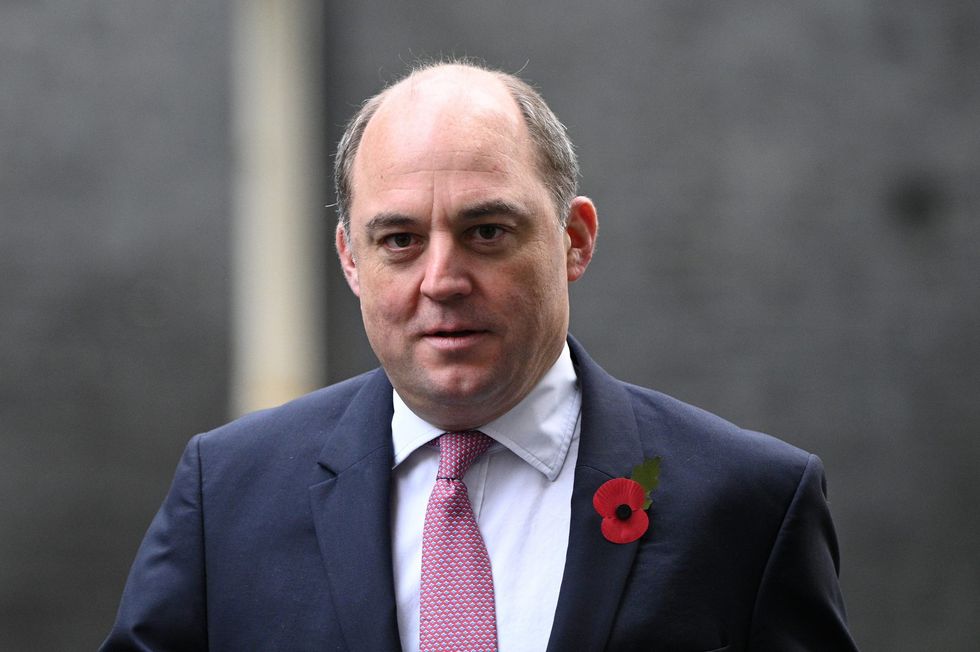The Taliban takeover of Afghanistan will inspire terrorists and trigger an “explosion” of extremism and security challenges for the world, UK defence secretary Ben Wallace warned on Thursday.
Speaking to the BBC, the cabinet minister said he feared that terror groups like Al Qaeda would view the Taliban advance as an “opportunity” and it was important for the West to gear up against such a prospect.
“It’s pretty straightforward. Failed states lead to an explosion of poverty and usually an explosion of extremism or security challenges. That’s why we have invested in capabilities to take action from outside a country,” Wallace said.
“One of the things I felt was wrong about where we were with this deal — you’ve heard me call it a rotten deal — is that around the world Islamists will see what they view as a victory. That will inspire other terrorists,” he said.
“Al-Qaeda is potentially going to look at this as an opportunity. We will have to gear up, tool up,” he added.

The minister, overseeing the evacuation of British nationals from Afghanistan, also dismissed some media reports claiming that planes were flying out of the region half empty.
Wallace said seven to 10 Royal Air Force (RAF) packed planes were taking off every day. The passengers on the flights out of Afghanistan this week have included British government personnel, British citizens, media and human rights staff and Afghans who had worked for the UK.
UK foreign secretary Dominic Raab said on Twitter that another 10 foreign office and home office staff had been sent to Afghanistan to help with the evacuation efforts.
Meanwhile, Raab has come under fire from the Labour Party after claims he failed to personally intervene to help evacuate Afghan interpreters. Raab was advised to telephone his Afghan counterpart for urgent support but reportedly the job was given to a junior minister.
"How can Boris Johnson allow the foreign secretary to continue in his role after yet another catastrophic failure of judgement,” questioned Labour’s shadow foreign secretary Lisa Nandy.
"If Dominic Raab doesn't have the decency to resign, the prime minister must show a shred of leadership and sack him," Nandy added.
Other parliamentarians have also echoed calls for Raab to step down over his handling of the Afghanistan crisis.
It comes a day after cross-party members of parliament, including from within the ruling Conservative Party ranks, rounded on British prime minister Boris Johnson in parliament on Wednesday over the situation which they said had destabilised the entire region.
Much of the anger was targeted at US president Joe Biden for his decision to withdraw US troops based on his predecessor Donald Trump’s dubious dealings with the Taliban.
“The collapse happened because a truly dreadful US president, Donald Trump, who was probably in hock to the Russians, dealt with the Taliban behind the Afghan Government’s back — a shocking betrayal,” said Conservative Party member of parliament Bob Seely.
“Joe Biden… could have changed things. He has chosen not to and has opened the United States, Europe, India and many allies throughout the world to considerable terrorist risks from the 2,500 to 4,000 jihadi nut jobs — pardon my French — who are currently being released from Bagram, Kandahar and Kabul,” he said.
“We are now in a mess. China, Russia and Iran are hostile. What are we going to say to citizens in Taiwan, India, Pakistan and western Ukraine? They will all be worried,” noted another Tory member of parliament Owen Paterson.
The debate had been called as a special session of Parliament, which is on summer recess for this month. During the session, Dominic Raab reiterated his previous statements in the House of Commons to say that India would play an important role in the UK’s handling of the crisis.
“We must work to safeguard regional stability. That will require us to work with different partners, and it will require engagement with key regional players, including India, China, Russia, Pakistan and central Asian states, however difficult, complex or outside of our comfort zone that may prove,” said Raab.
“Through our domestic sanctions regime and by working with the Indians, who chair the UN sanctions regime for Afghanistan, we will make sure that we can exercise a moderating influence on the Taliban regime,” he added.




















